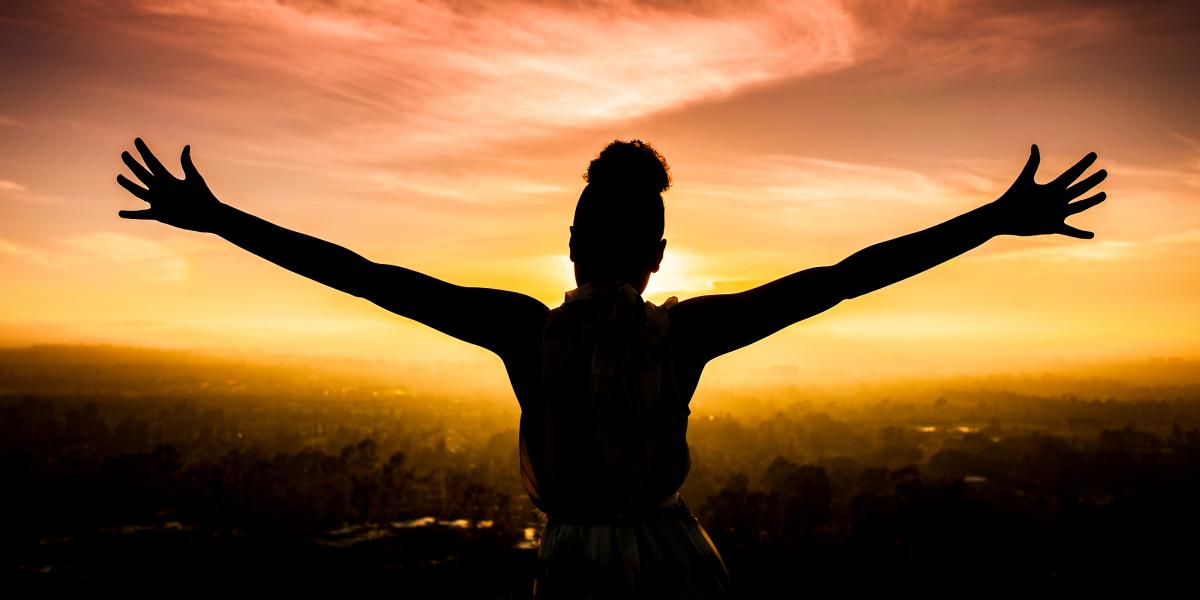The Freedom to Rest
For Vice Dean Keshia Pollack Porter, Juneteenth is a time to make space for restorative rest of the mind and body.
Growing up in New York, I was heavily involved with my high school’s African American Student Alliance. My parents are from the Caribbean, and I was raised to embrace my West Indian heritage and to lean in to being a Black American. At home and through my high school group, I celebrated Kwanzaa, Christmas, Boxing Day (the day after Christmas)—and Juneteenth, to commemorate the end of slavery in the U.S. On June 19, 1865—a little more than two months after the Civil War’s end and two and a half years after President Lincoln signed the Emancipation Proclamation—enslaved people in Texas finally received the news that they were free.
In 2020, when the U.S. saw a national uprising in support of racial equity, Juneteenth took on a heightened significance, as some states and cities declared the day an official holiday and some prominent corporations gave employees a paid day off. Several of us at Johns Hopkins pushed for the holiday designation, and we celebrated when leadership approved an early closing of the University, making a space to recognize Juneteenth. At the Bloomberg School, the Dean’s Office hosted its inaugural Juneteenth gathering: Commemorate, Celebrate, and Elevate.
I have learned to celebrate Juneteenth as a day for restorative rest, which I interpret as making space to restore my mind and body by doing things that bring joy and purpose.
One year later, in May 2021, the University announced that it will recognize the anniversary of Juneteenth as a holiday, beginning this year and going forward. We celebrated again and applaud our University’s leaders for choosing to honor the Black community in this way.
Juneteenth, for many, is a day of joy, family reunions, and cookouts—that is how I remember it growing up. In recent years, I have learned to celebrate Juneteenth as a day for restorative rest, which I interpret as making space to restore my mind and body by doing things that bring joy and purpose.
I believe that rest can be an important tool to combat racism. While promoting rest to fight racism may sound paradoxical, it seems to me that any effort to heal racism begins with healing our bodies. By healing our bodies from the trauma of racism—as well as the accumulated physical effects of discrimination and microaggressions—we give ourselves a better chance of avoiding early death from diseases and injuries that disproportionately kill Black and Brown people.
This need to make space for rest includes our workplace. Early in our School’s remote work journey due to the pandemic, I pushed for the creation of No-Meeting Workdays, which Dean MacKenzie enthusiastically supported. These days are intended to help us make space to think, slow down and not rush from meeting to meeting, and resist societal norms that tell us we have to work longer and harder to be successful. Rest is essential, especially after such a trying year of separation from and loss of our loved ones, a time when we may have even questioned our purpose.
I don’t know about you, but I am tired. (BTW, it is OK to admit this!) So, without apologies, I give myself permission to make space this Juneteenth to rest my mind and my body.
This rest is not for me alone. In exploring my lineage, my research suggests that as part of the Transatlantic Slave Trade, my ancestors were taken from West Africa to the Caribbean where they worked on sugar cane plantations. On Juneteenth, I will honor them and their sacrifice. I will remember how hard they toiled under the hot sun, and rest for those who were unable to.
I hope that this Juneteenth you will join me in celebrating liberation by embracing restorative rest. Rest to honor your body, soul, and your mind. Rest to liberate yourself from the archaic and colonial-inspired notion of work. Rest—to resist and to heal.
